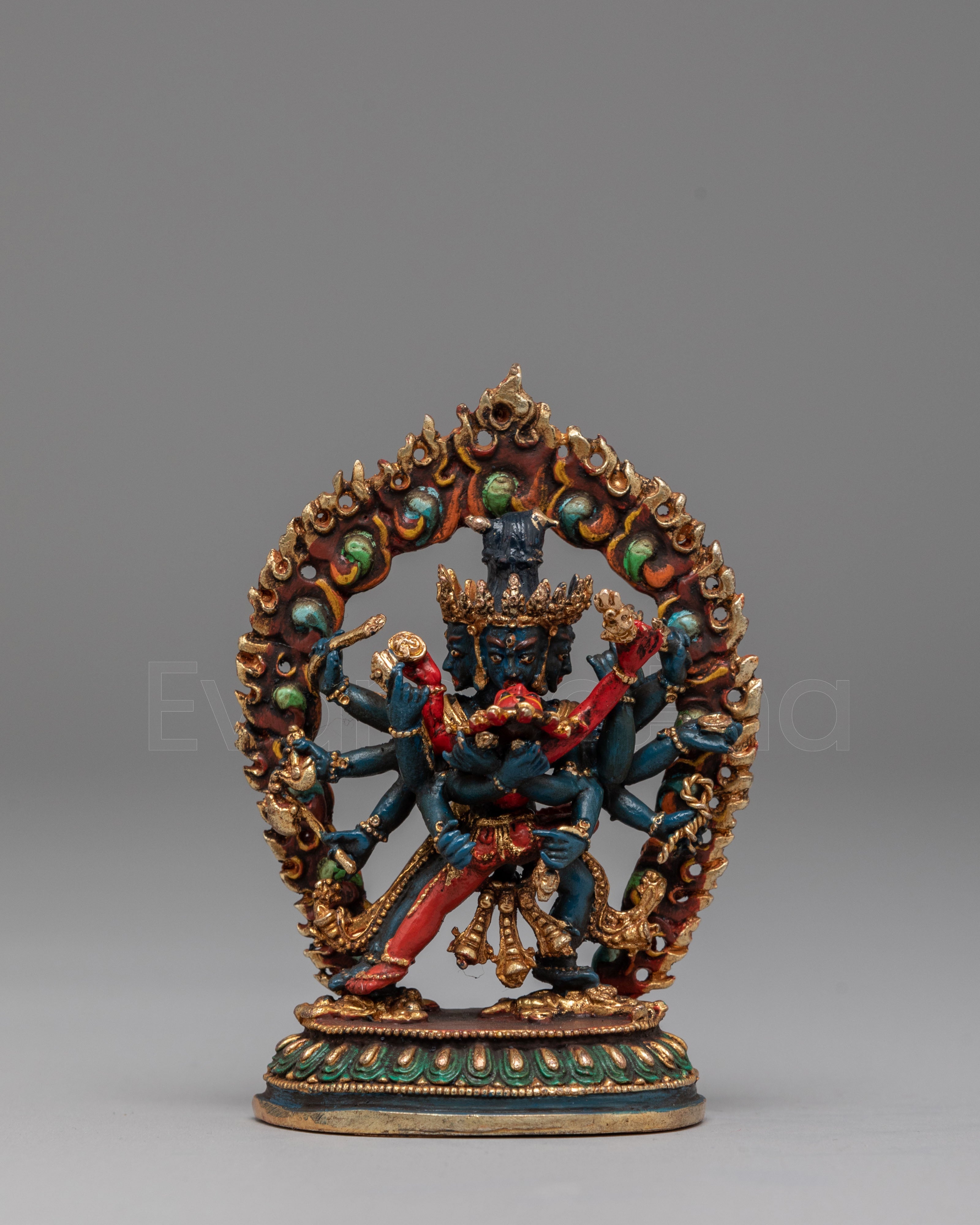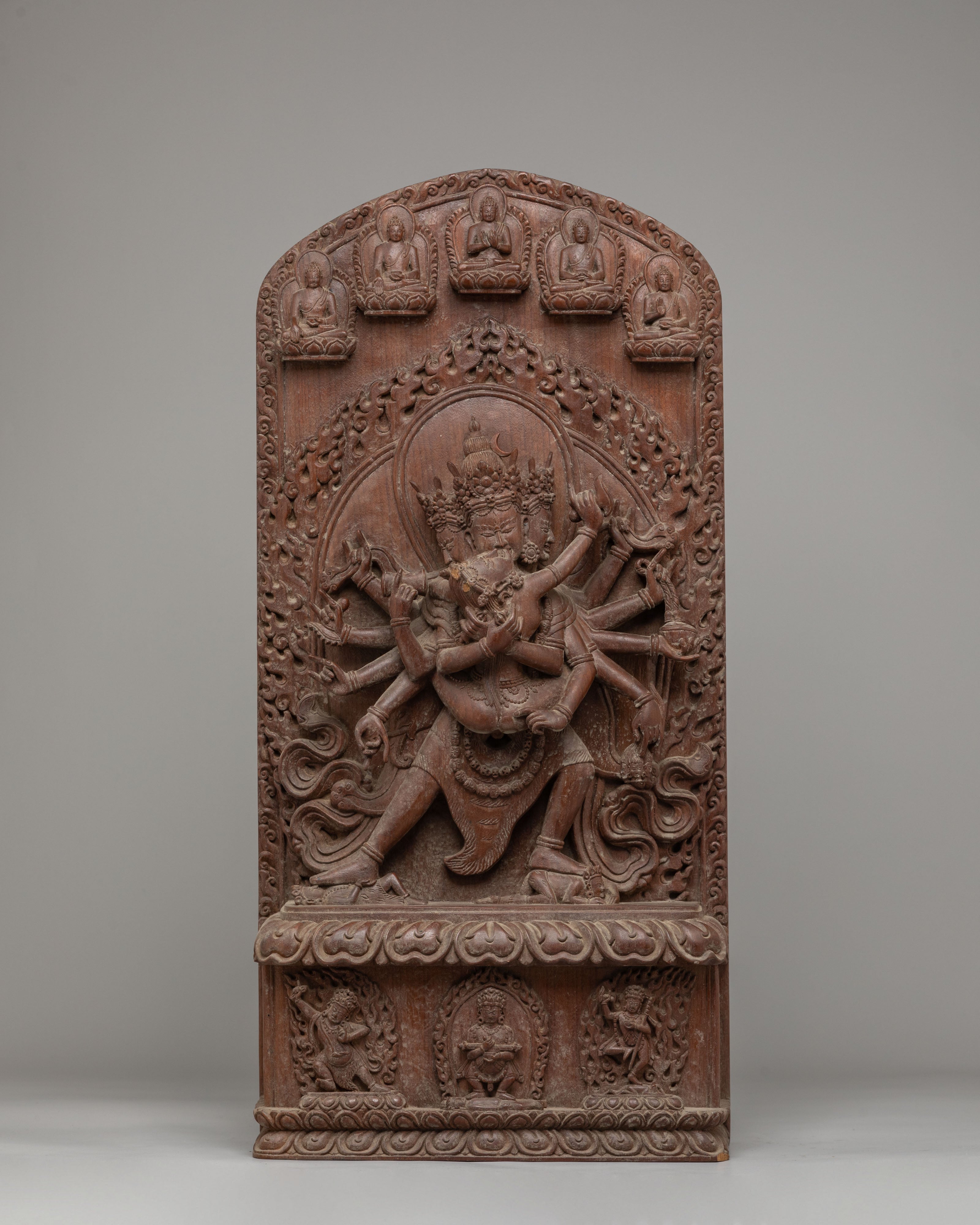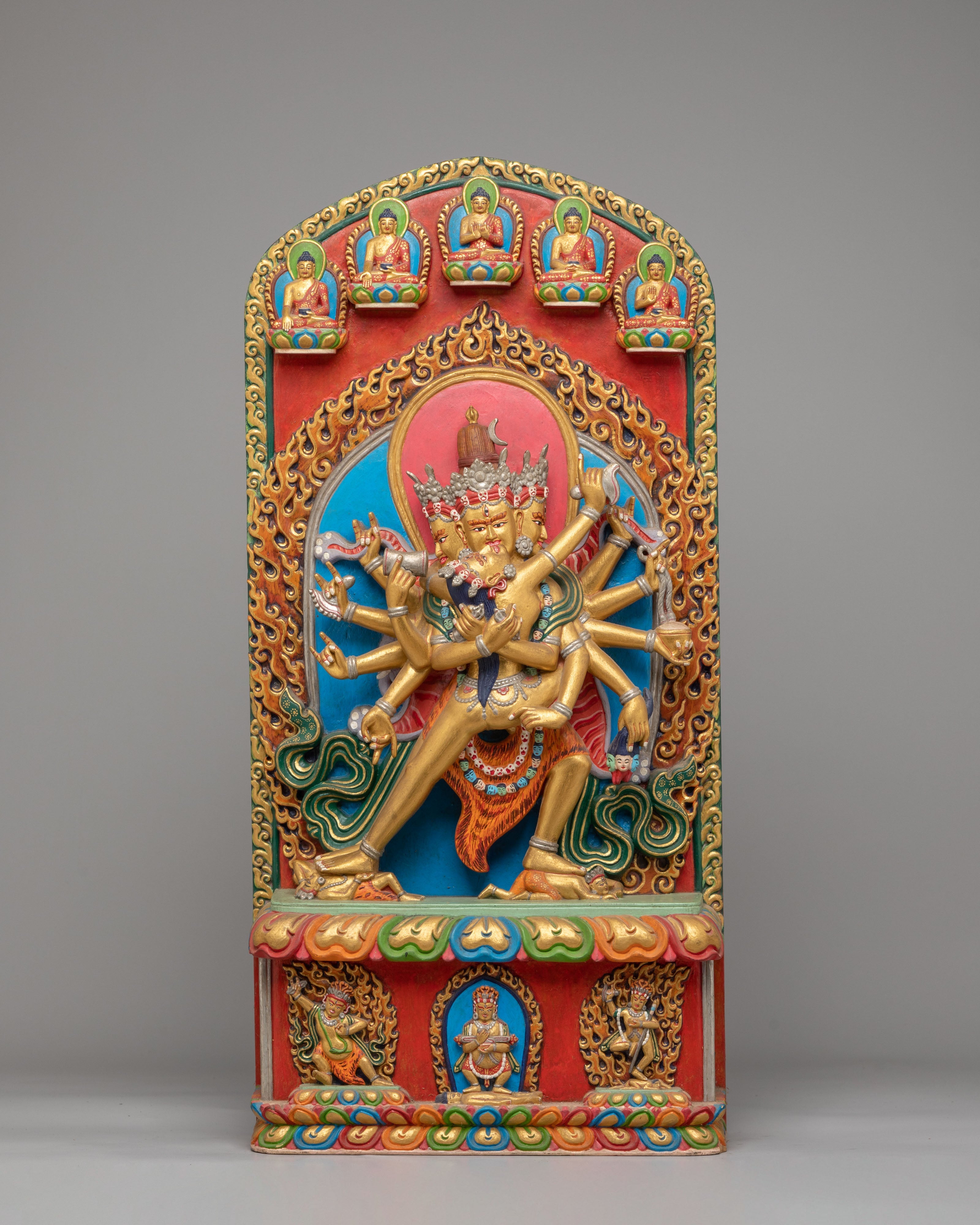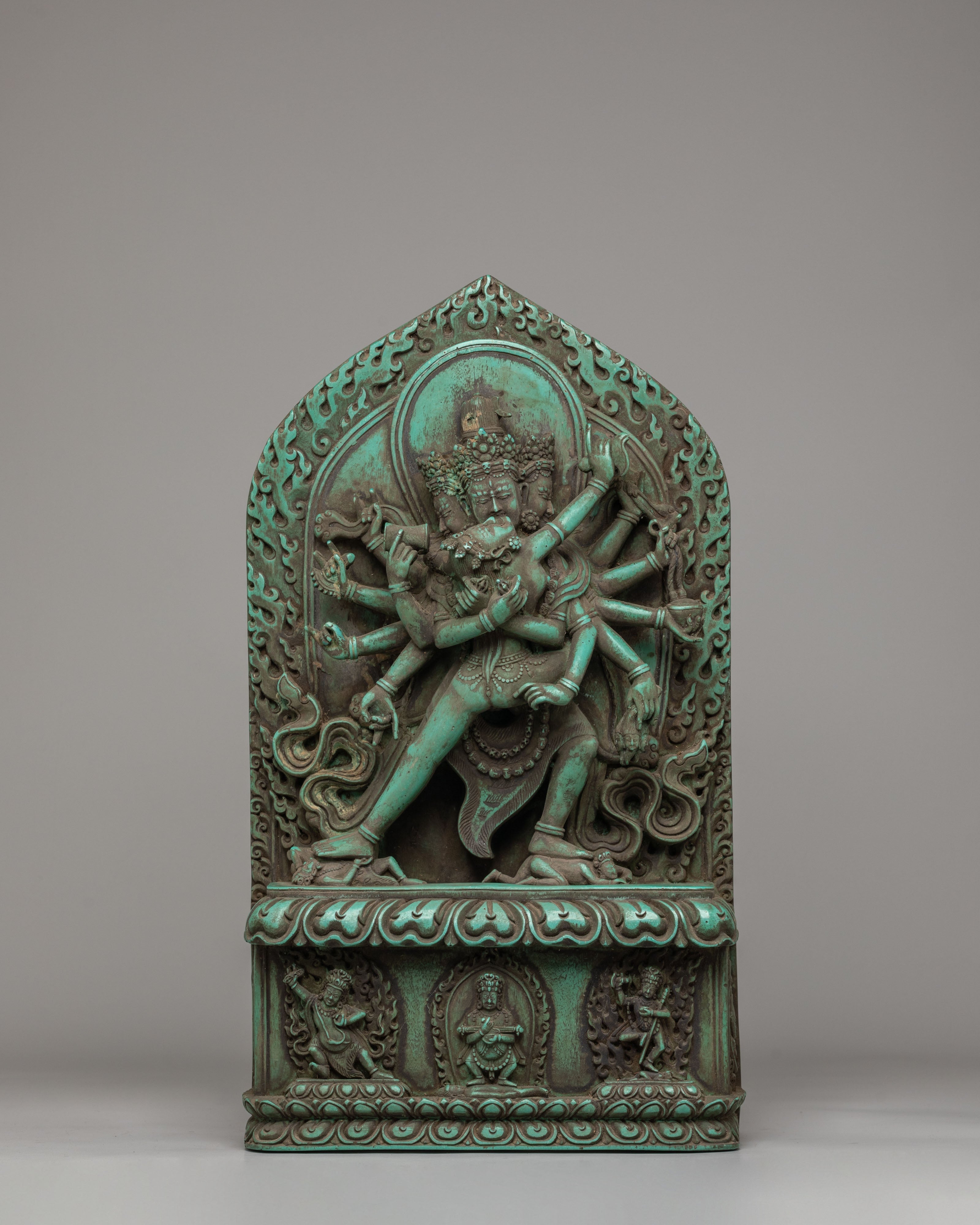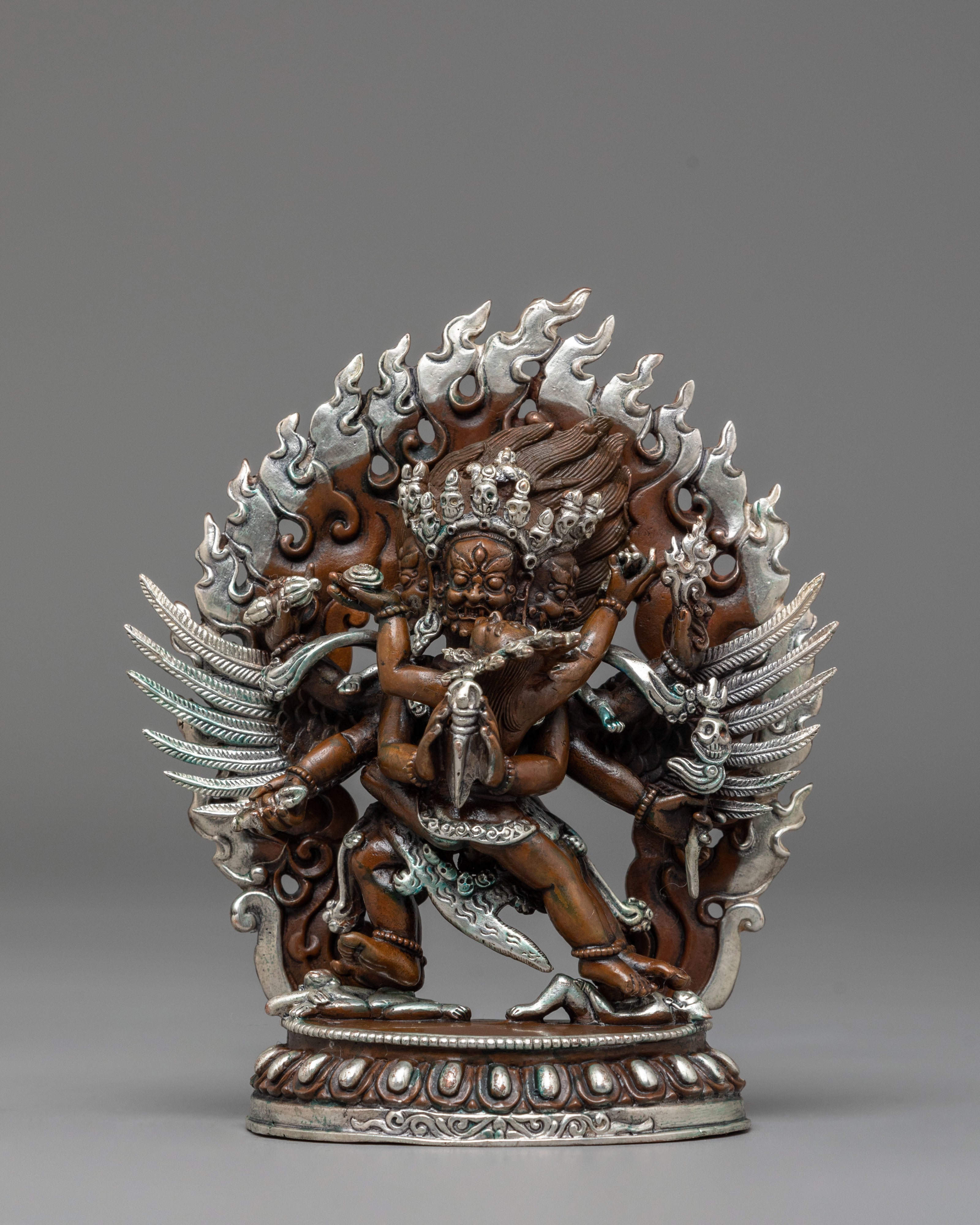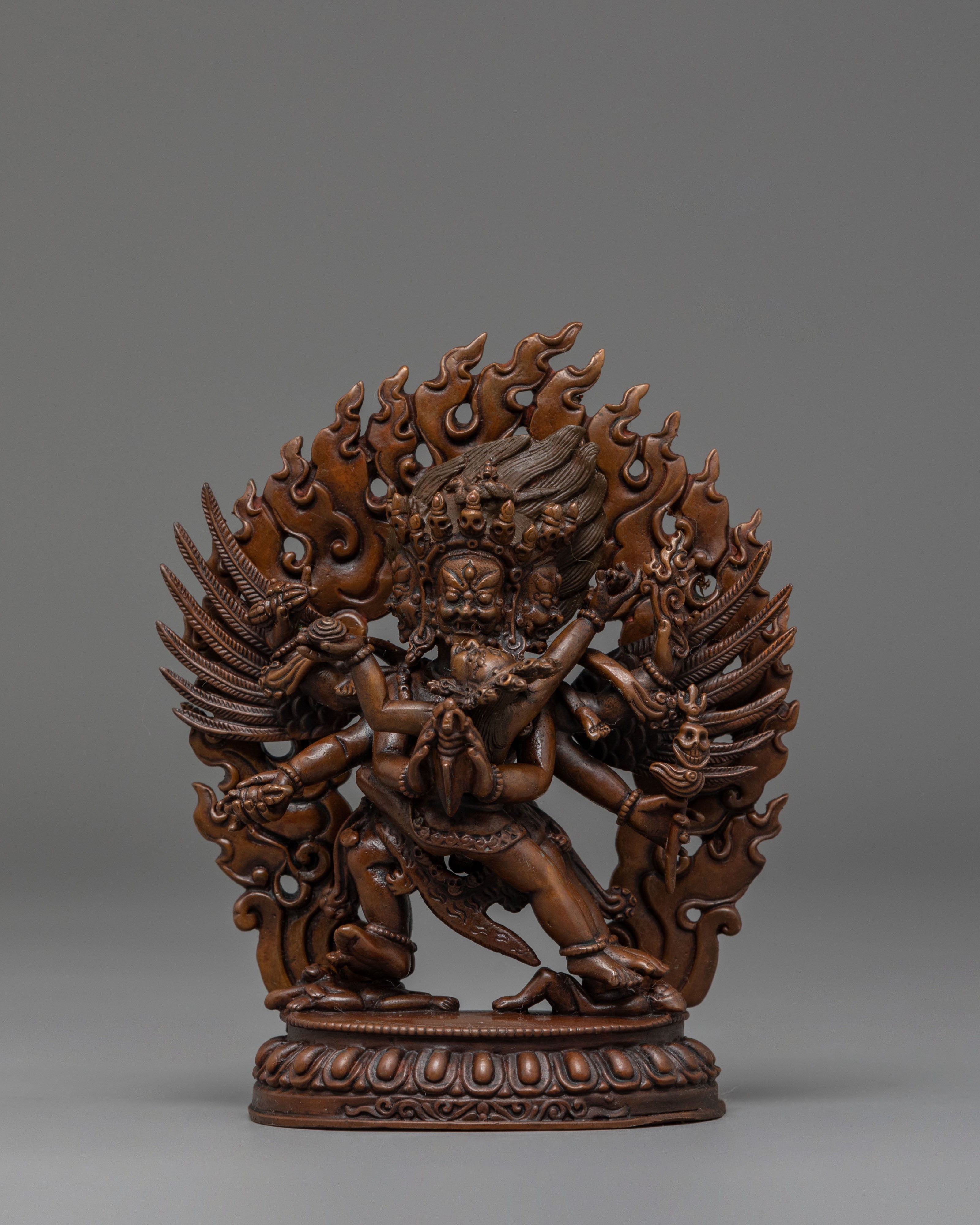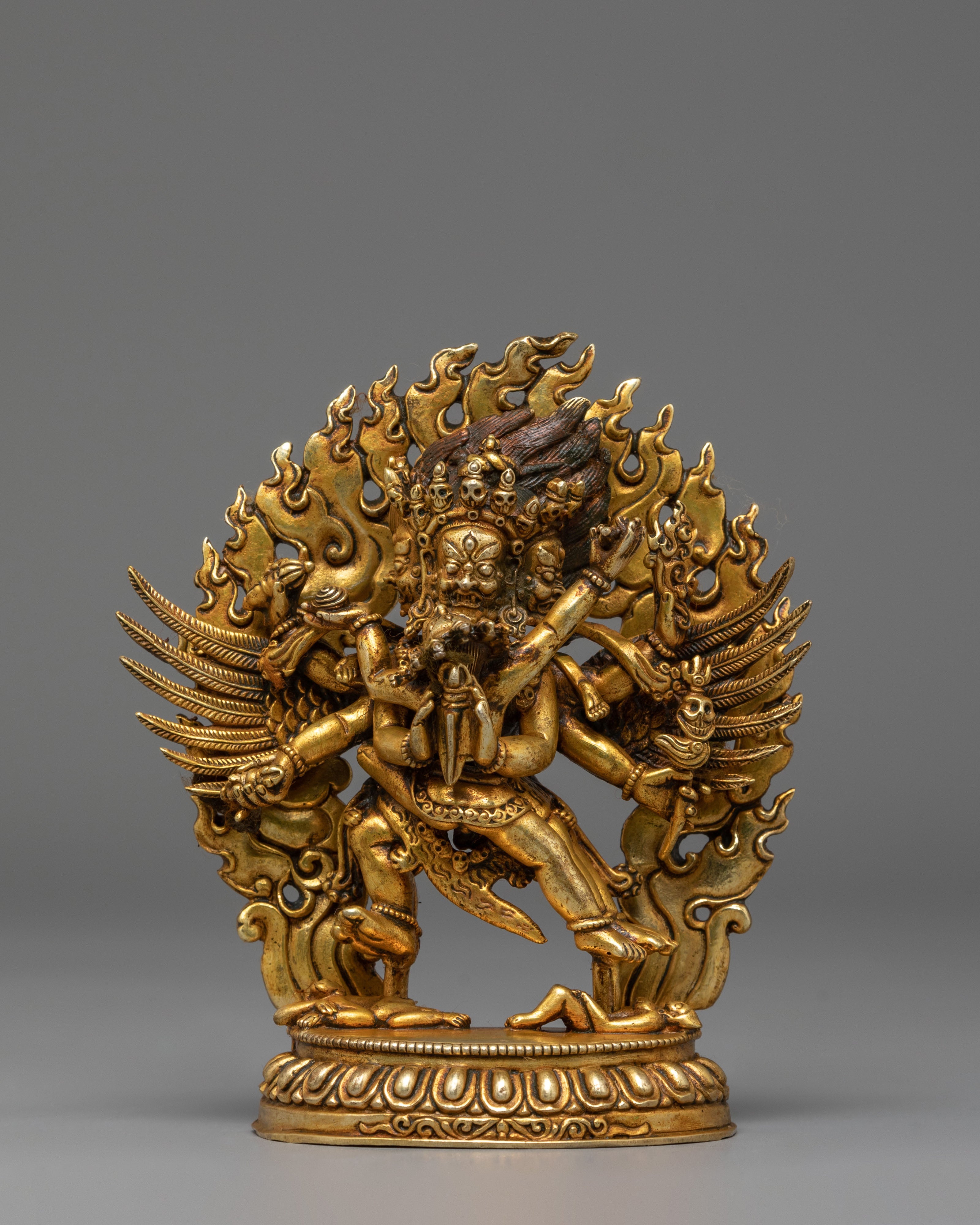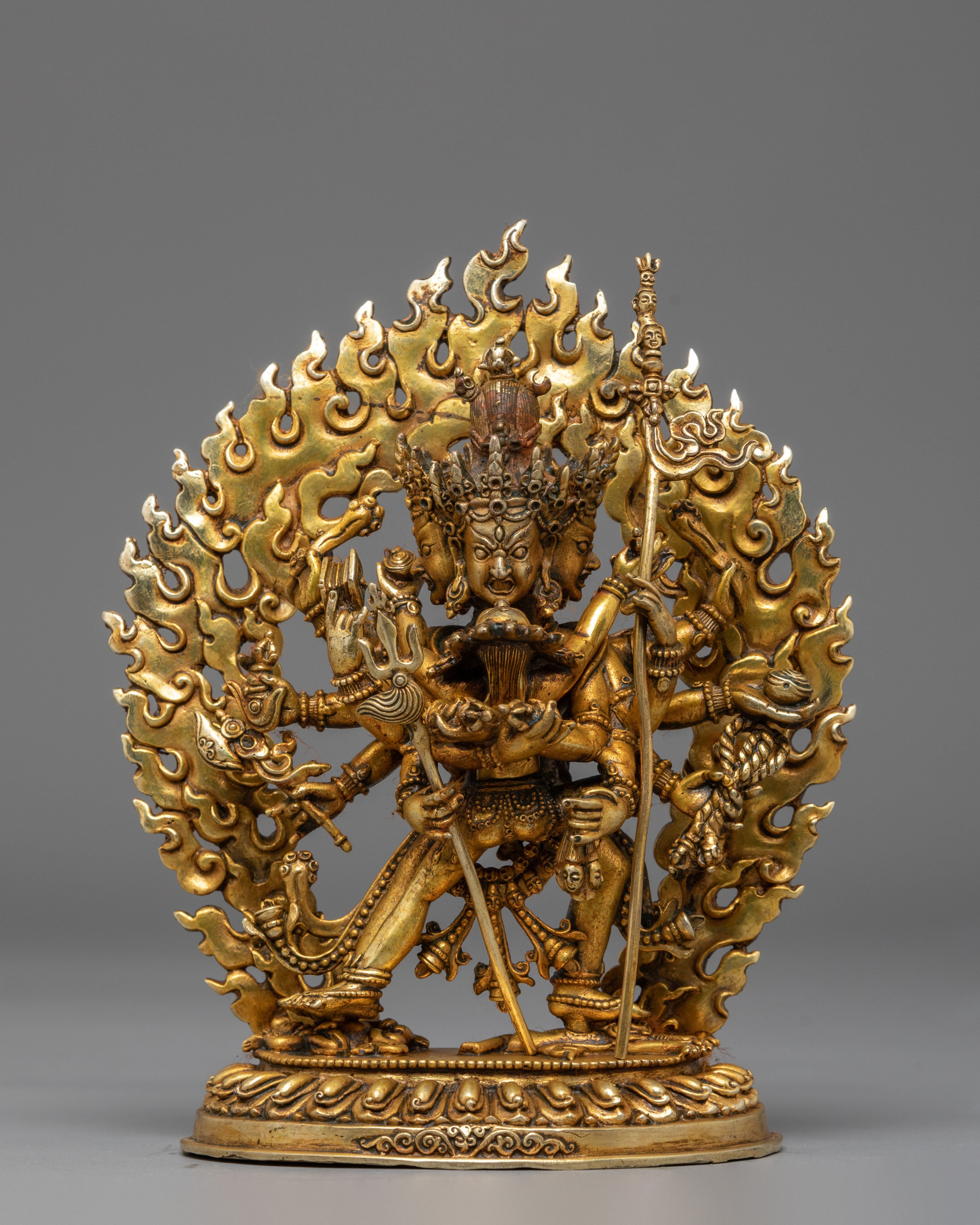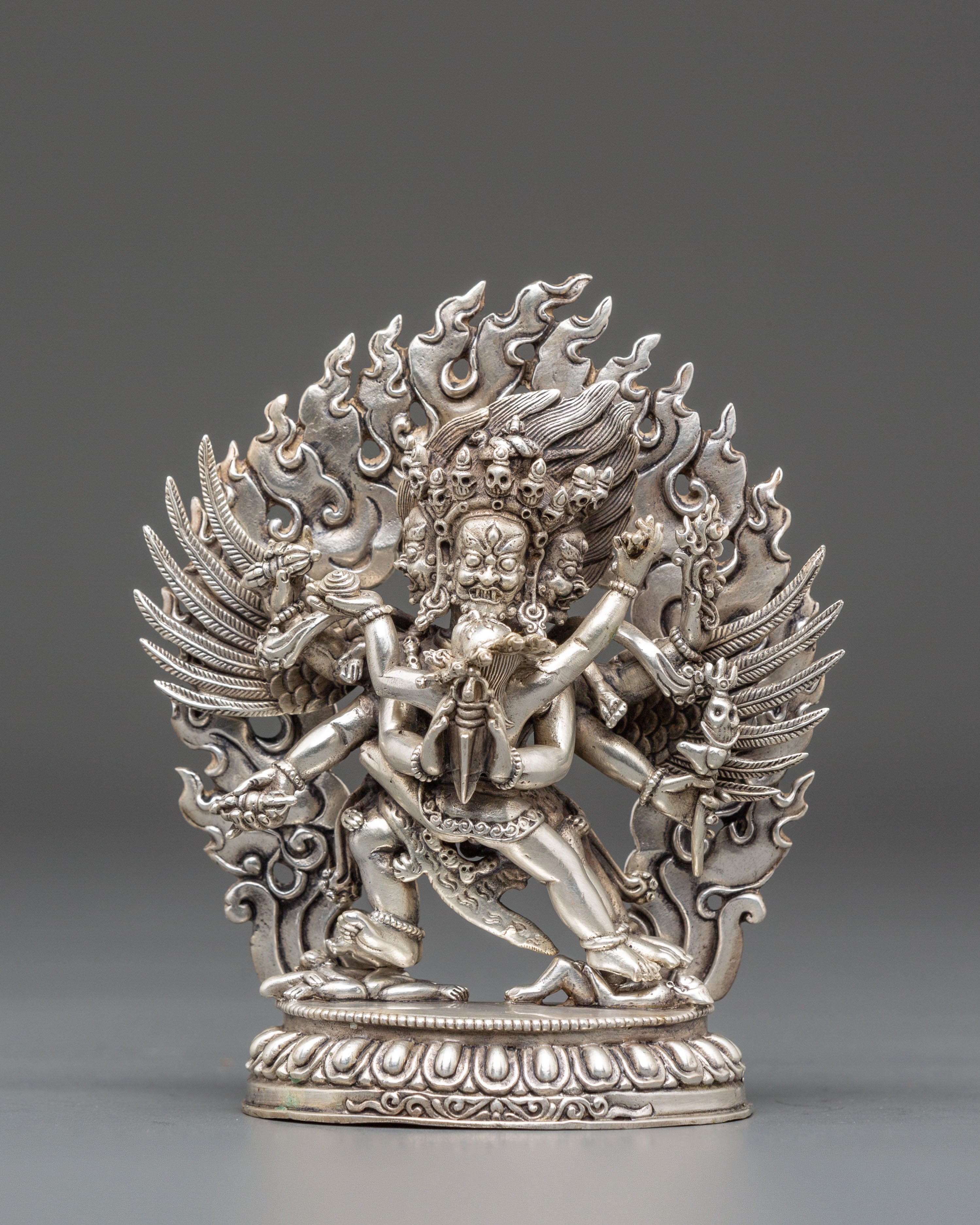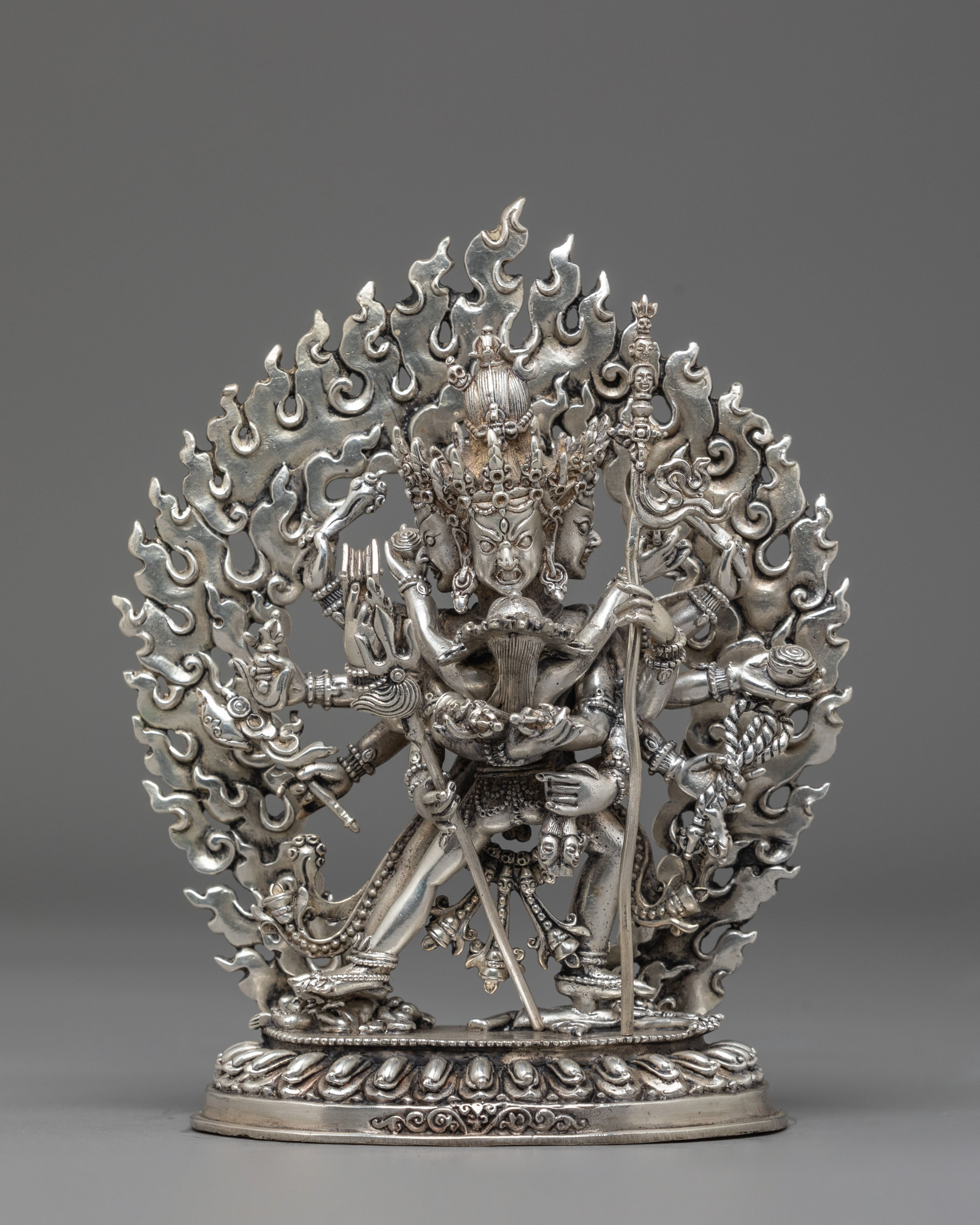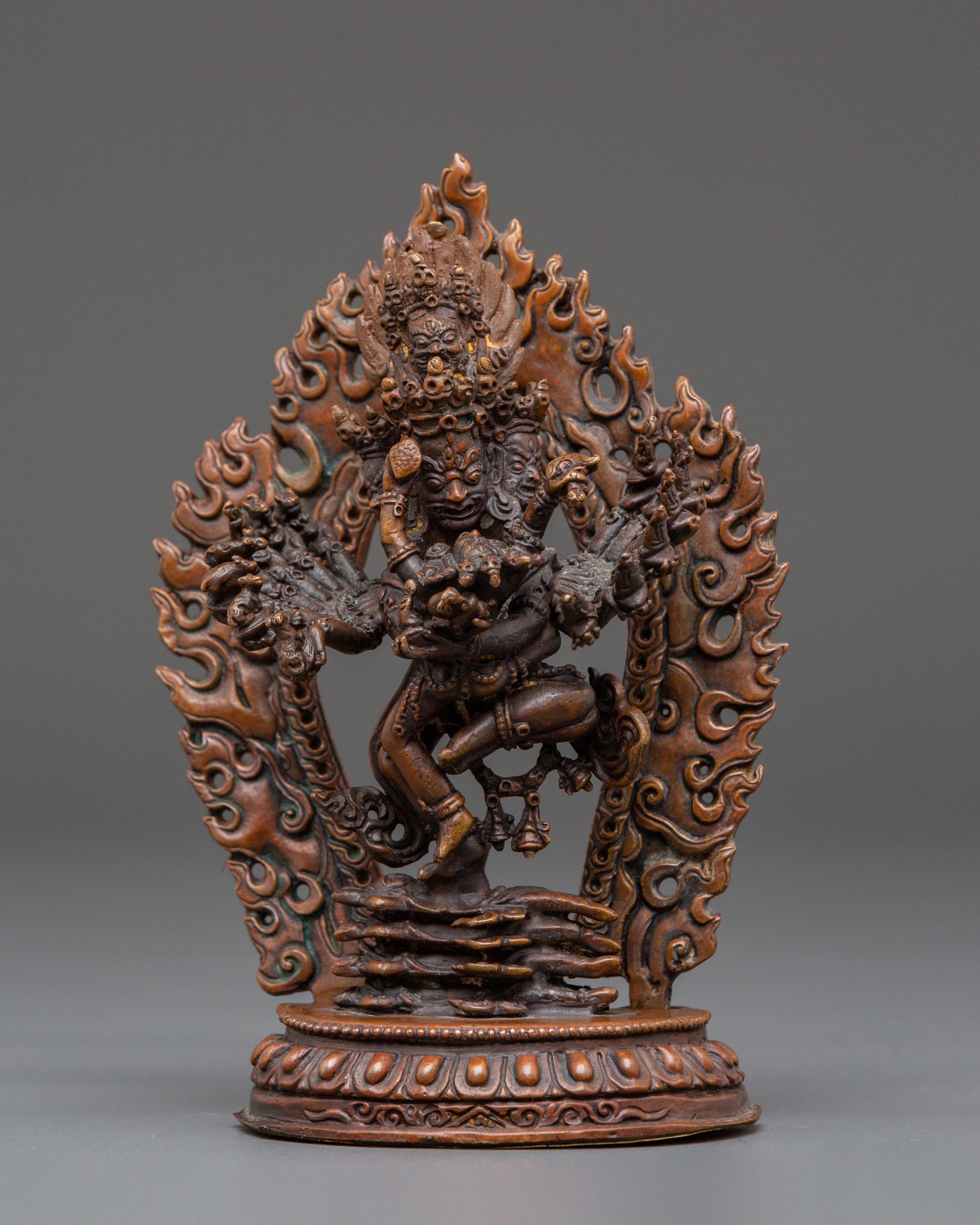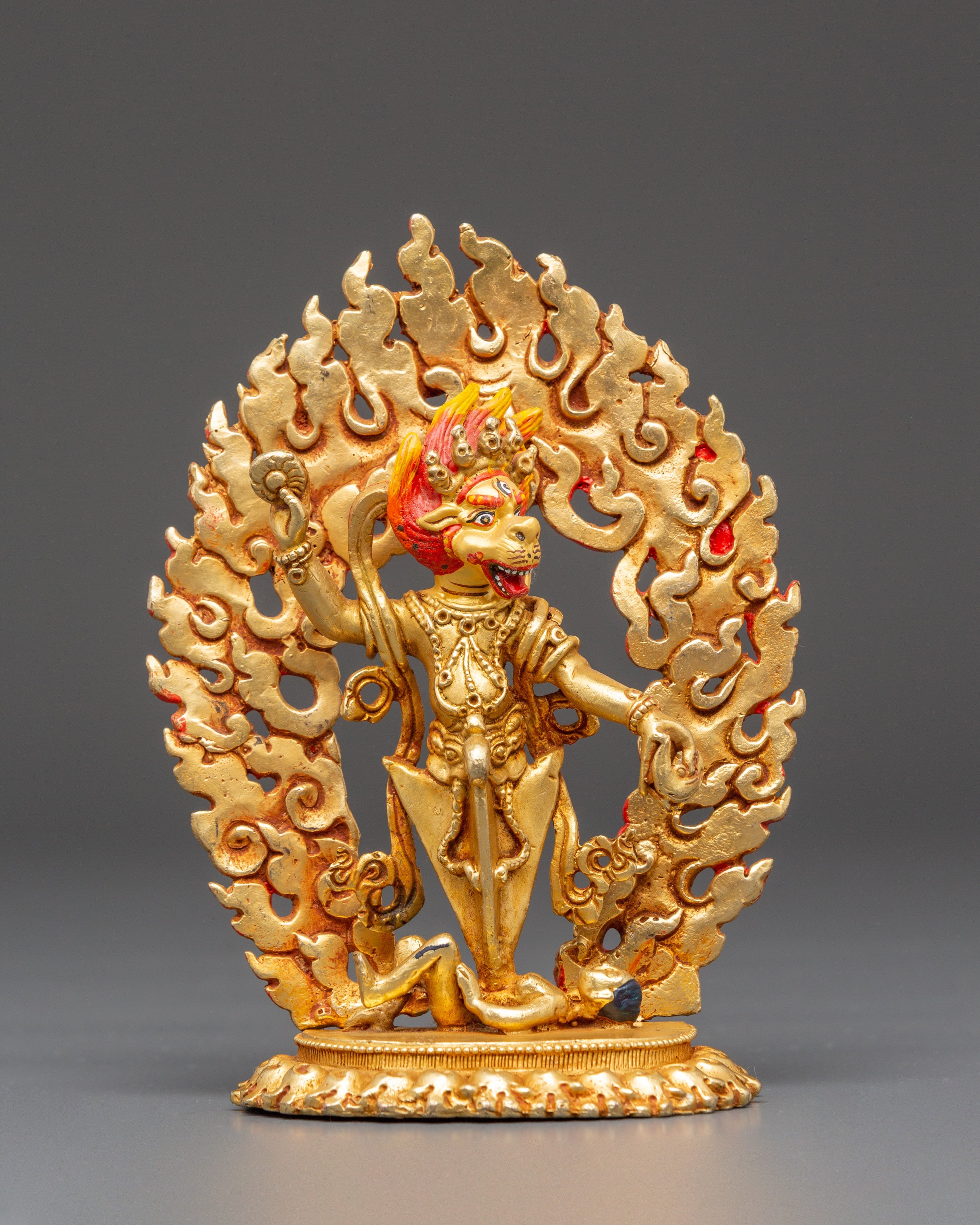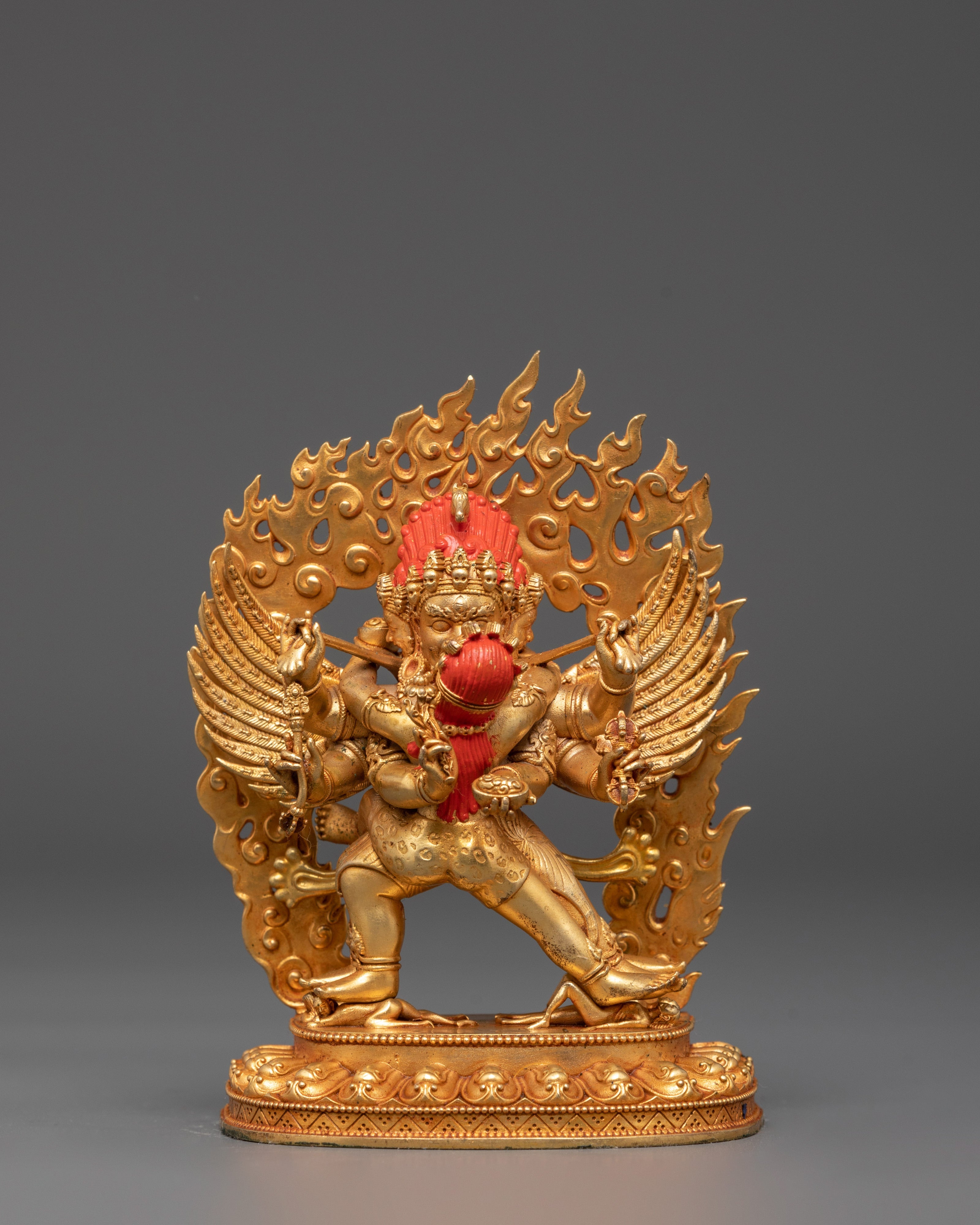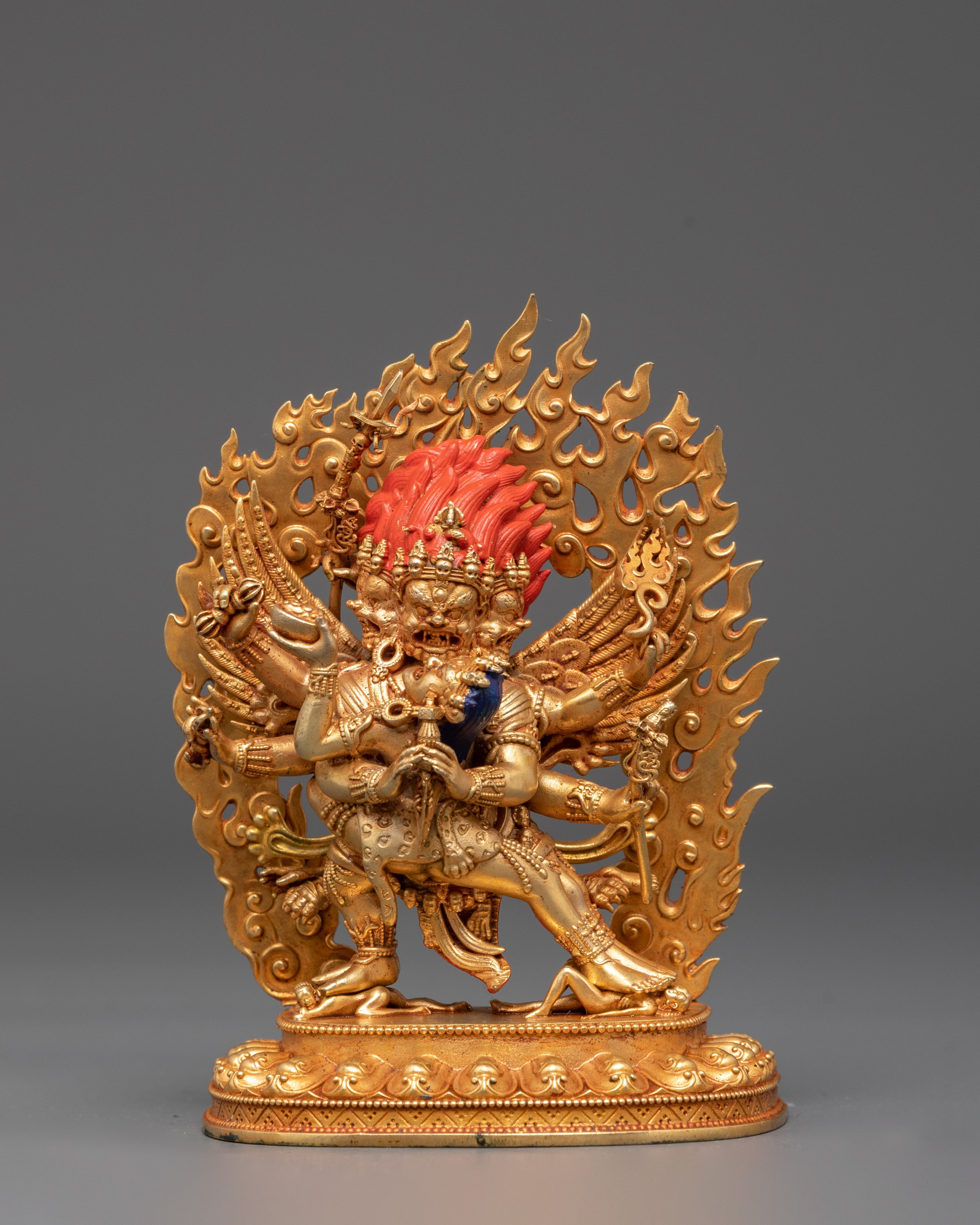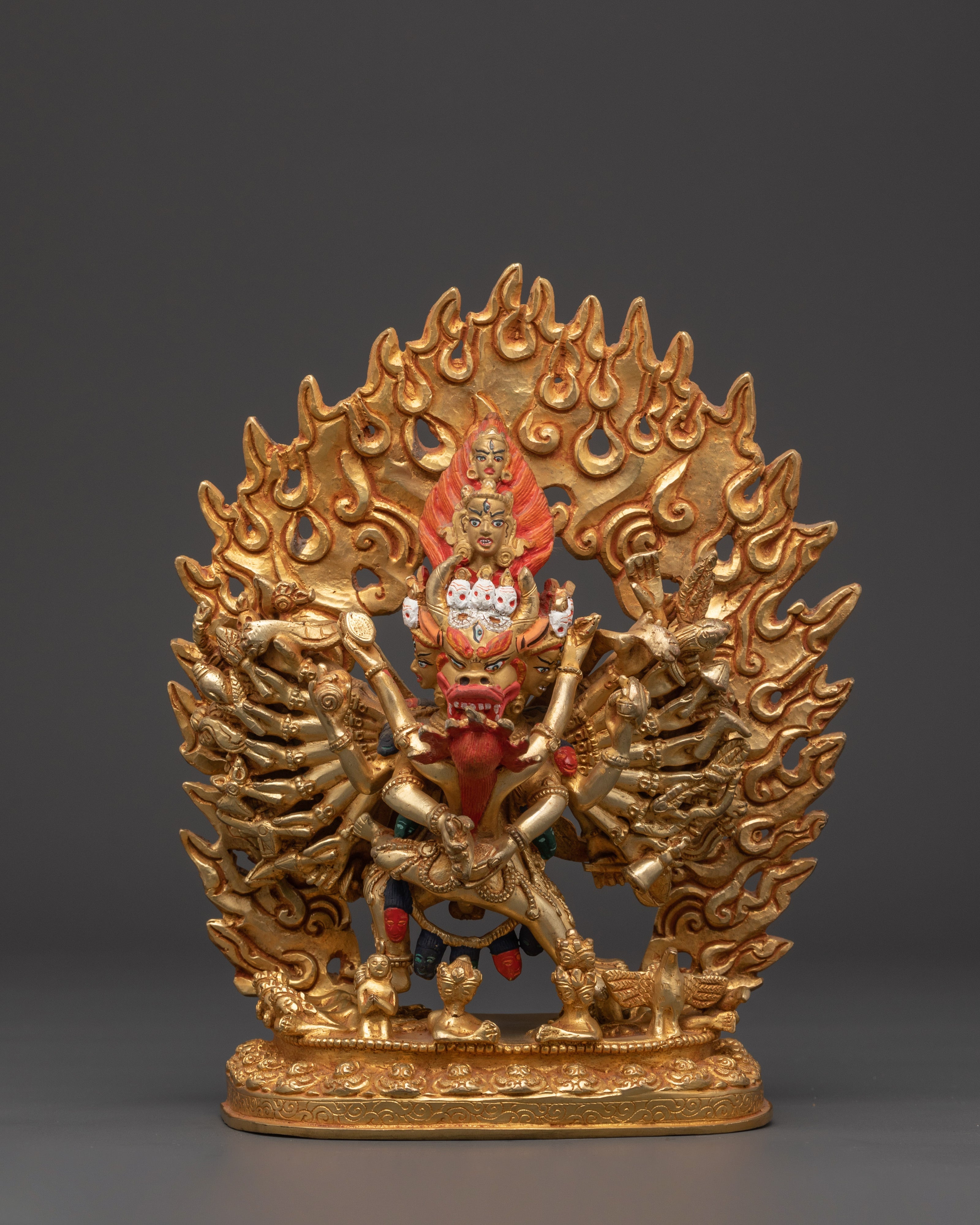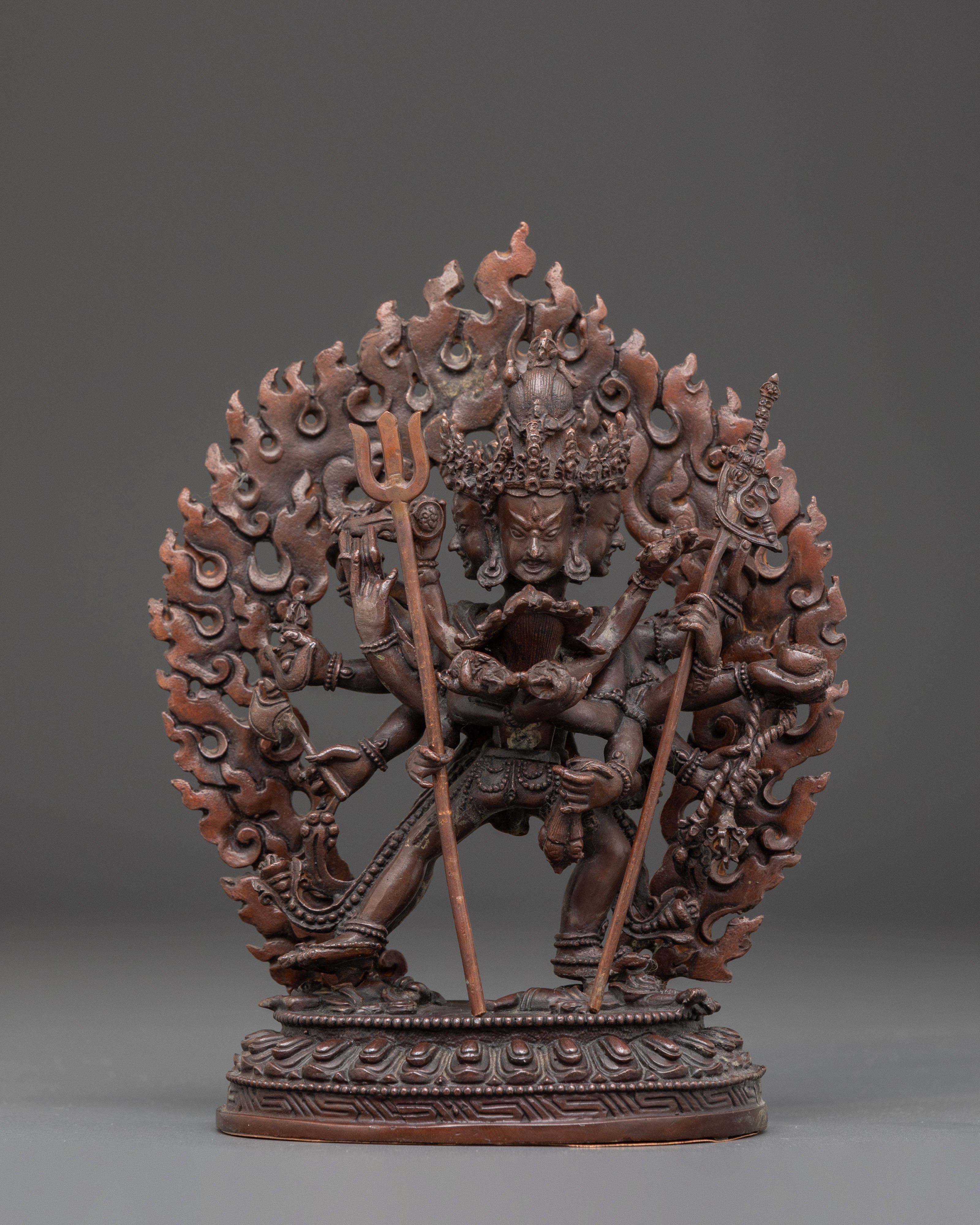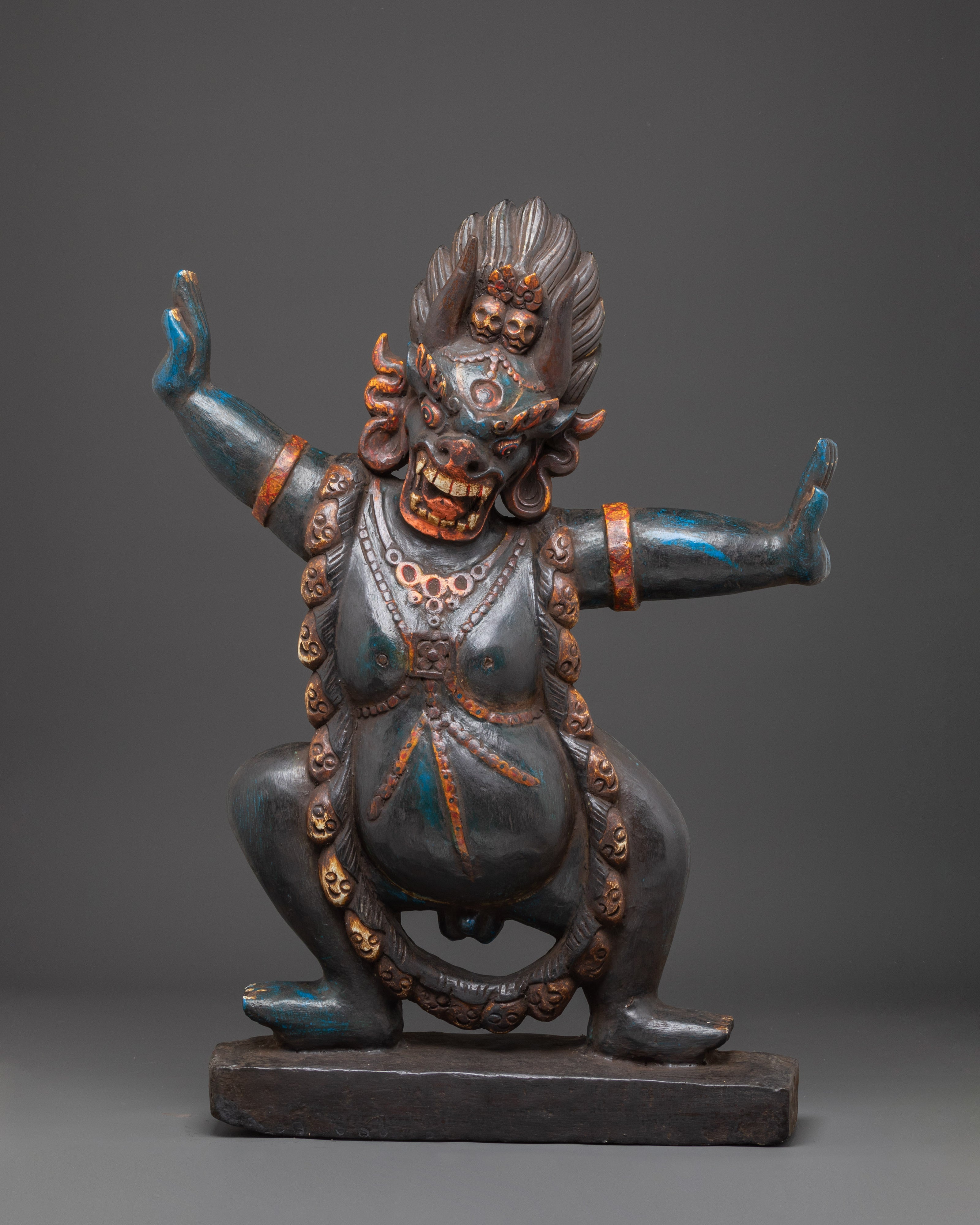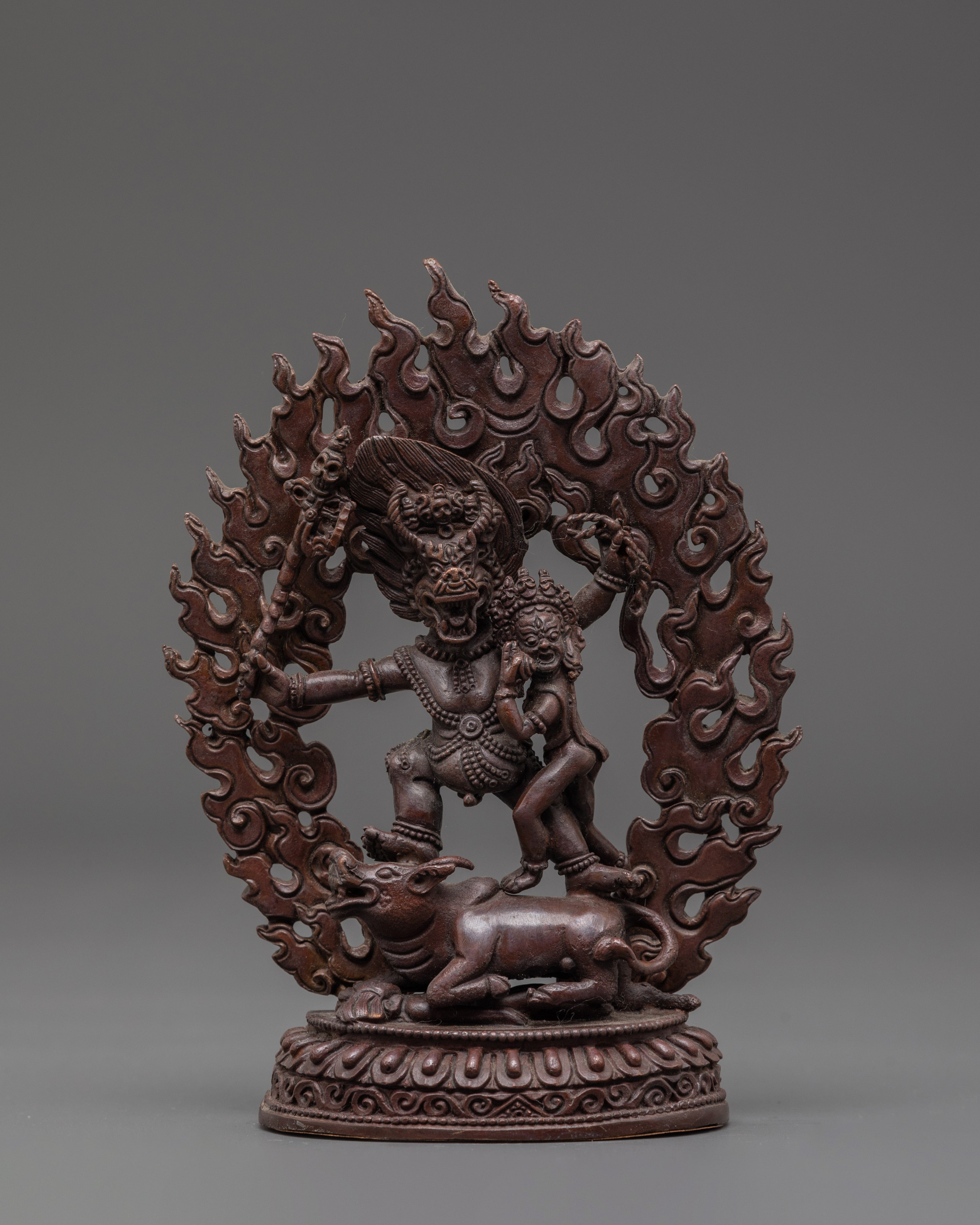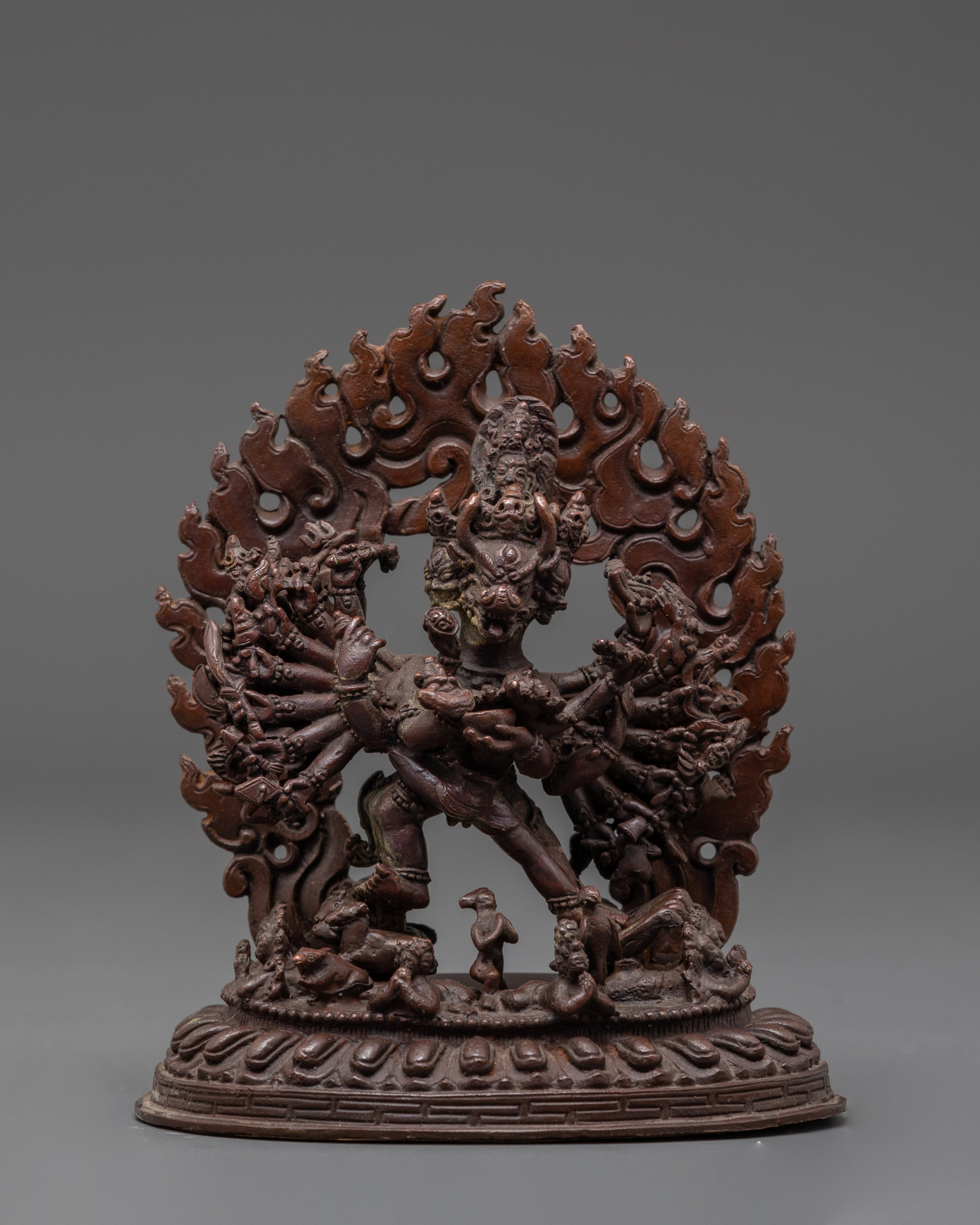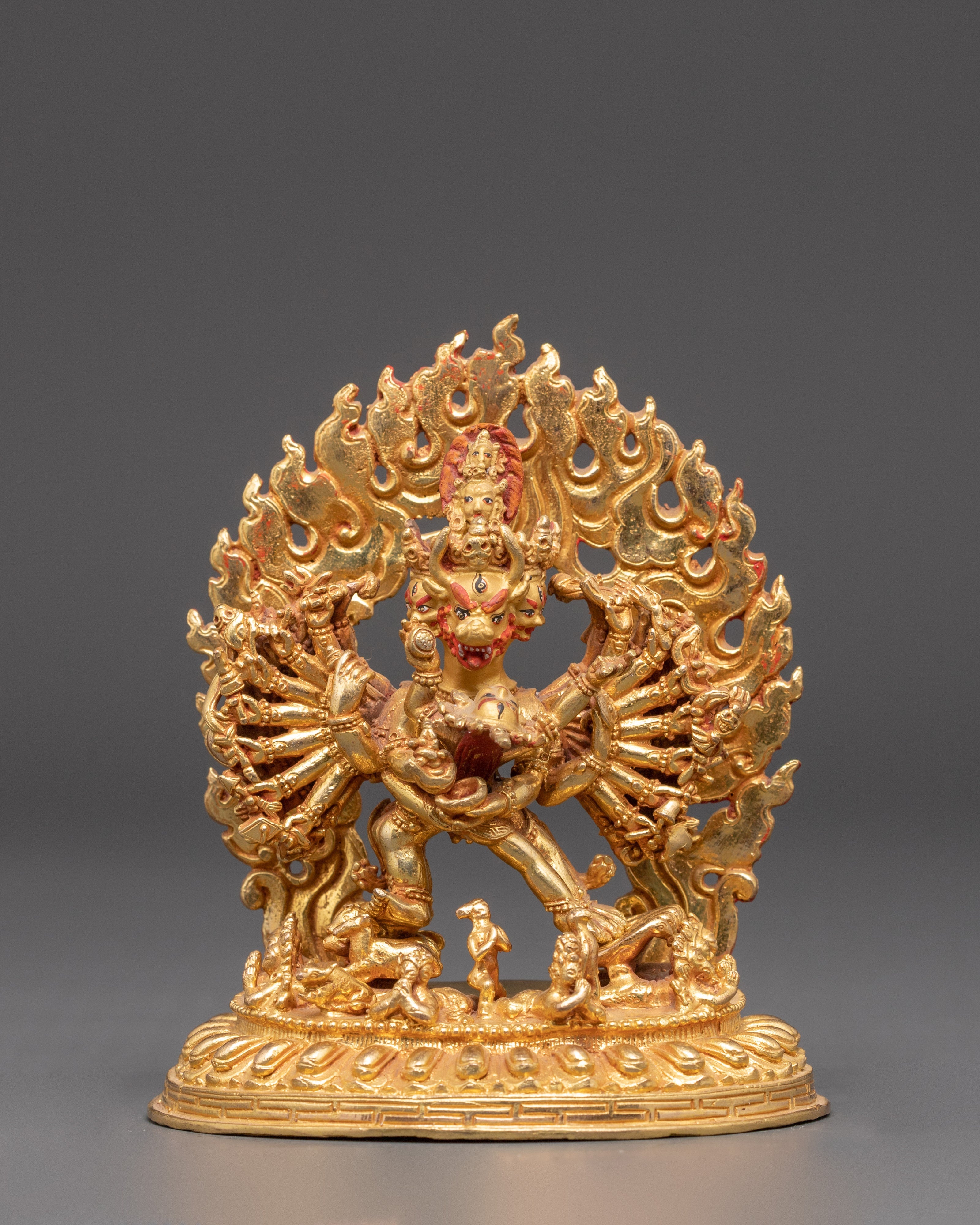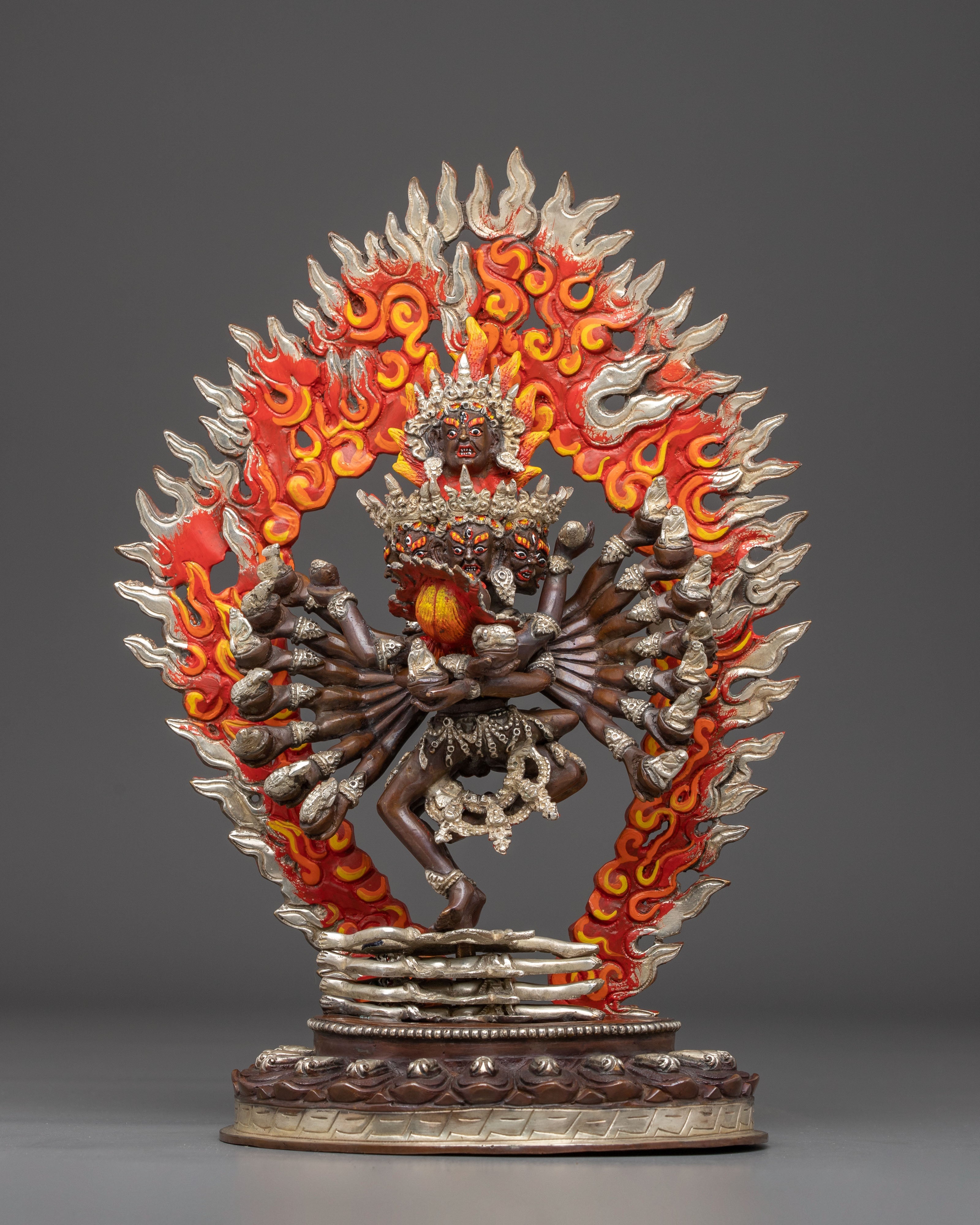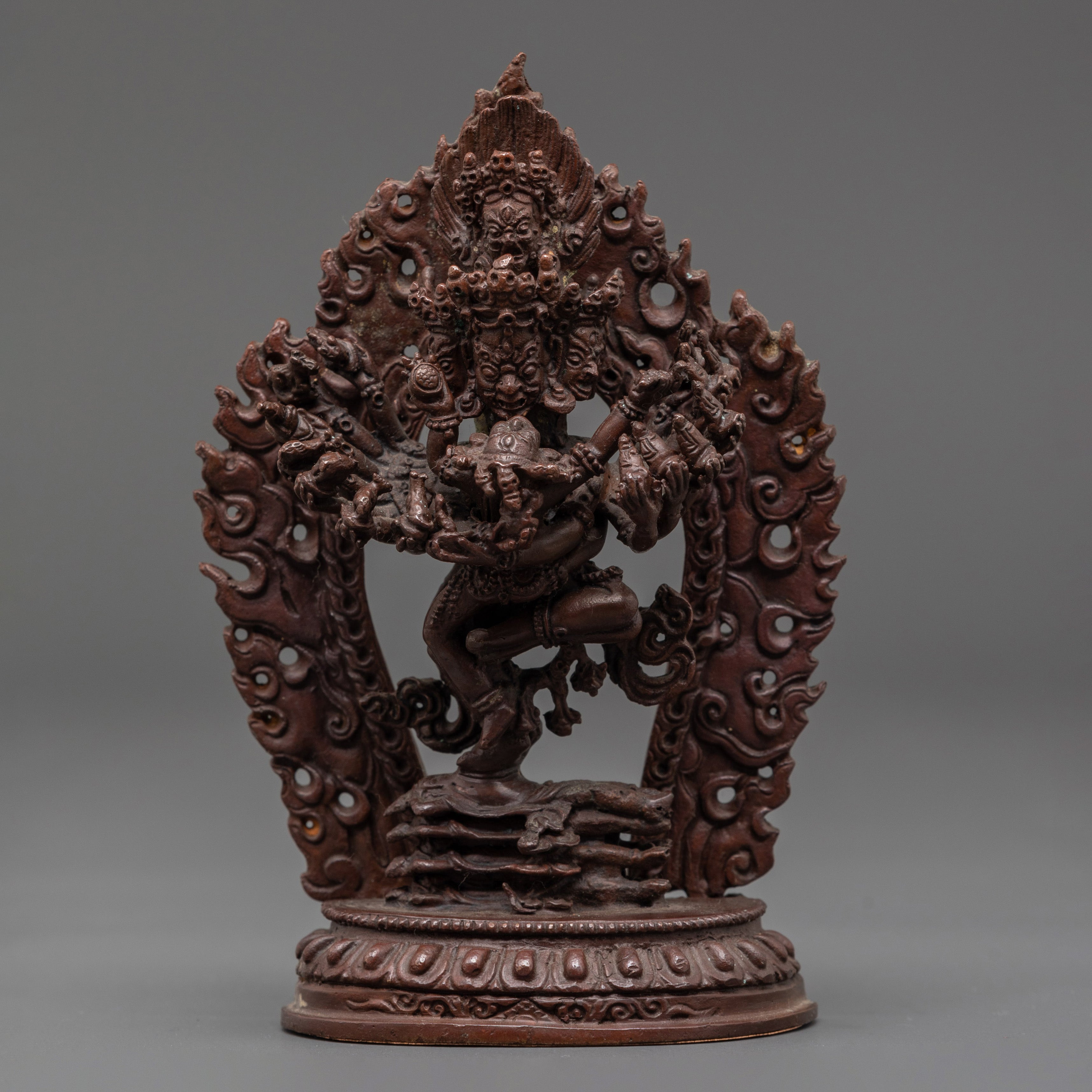Yidam Statue
72 products
Showing 1 - 24 of 72 products
Yidam: The Personal Meditation Deity in Vajrayana Buddhism
Yidam, a fundamental concept in Vajrayana Buddhism, refers to a chosen meditation deity or a specific meditation focus. The term "Yidam," derived from the Tibetan language, translates to "mind deity" or "mind support." Yidams hold a central role in Vajrayana practice as potent and individual spiritual guides that aid practitioners in realizing their innate wisdom and enlightenment.
Yidams are significant because they serve as a means of awakening and transformation. Yidam practices are designed to assist practitioners in surmounting obstacles, purifying their minds, and ultimately realizing the nature of reality. Each practitioner selects a yidam with whom they resonate, establishing a profound and meaningful connection that facilitates spiritual growth.
Attributes and Iconography:
Yidams can manifest in various forms, each associated with specific qualities and attributes. The choice of yidam depends on the practitioner's inclination and spiritual goals. Common characteristics and symbols related to yidams include:
- Appearance: Yidams can exhibit a range of colors, expressions, and attire, and they may appear peaceful, wrathful, or a combination of both. For example, the peaceful yidam Avalokiteshvara may have a compassionate countenance, while the wrathful yidam Vajrakilaya displays a fierce demeanor.
- Mudras and Implements: Yidams often wield symbolic implements and hand gestures (mudras) that represent various aspects of enlightened qualities and practices. These may include vajras, bells, swords, and lotus flowers.
- Consorts: Some yidams are depicted with consorts, symbolizing the union of compassion and wisdom, as well as the integration of masculine and feminine energies.
Associated Stories and Beliefs:
Yidam meditation involves visualizing oneself as the yidam and merging one's consciousness with the deity. This practice purifies the practitioner's mind, transforms their ordinary perceptions, and ultimately leads to realizing their own Buddha nature through profound visualization.
Each yidam has specific rituals, mantras, and imagery transmitted through lineages and empowerments. These methods are typically taught to dedicated students by qualified teachers.
Standard practices in yidam meditation include:
- Reciting the deity's mantra.
- Mentally creating a mandala.
- Cultivating a close relationship with the yidam during meditation.
The practitioner seeks to integrate the yidam's presence into their daily life by merging meditation and ordinary activities.
In Vajrayana Buddhism, Yidam, the personal meditation deity, is crucial in guiding practitioners on their path to enlightenment and spiritual realization. Yidams are significant because they facilitate mental purification and deepen the practitioner's connection with their chosen deity.


